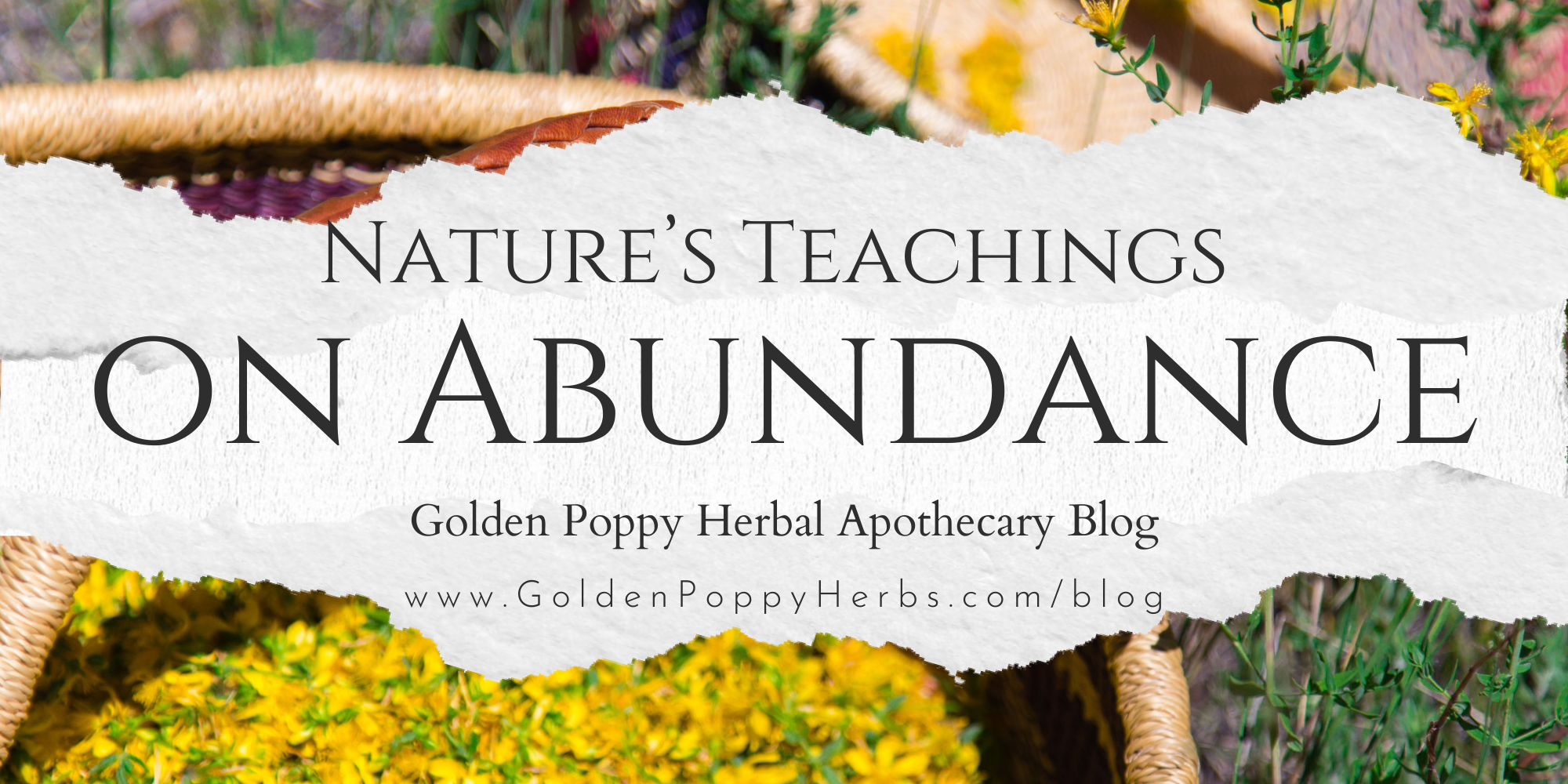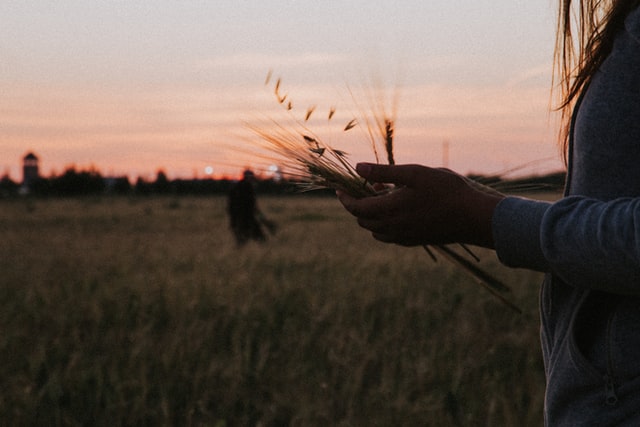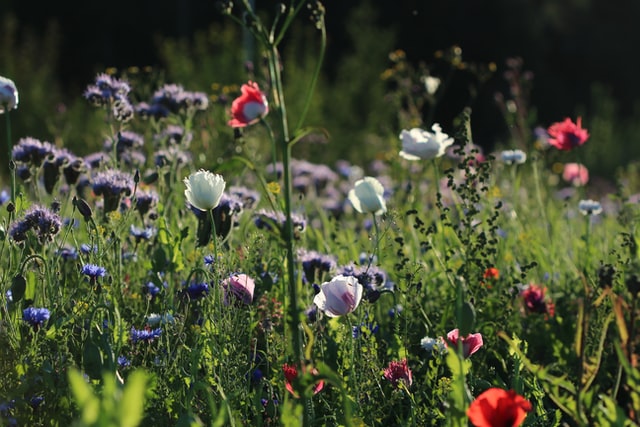
It’s impossible to be lonely when you’re zesting an orange. Scrape the soft rind once And the whole room fills with fruit. Look around: you have more than enough. Always have. You just didn’t notice until now.
~Amy Schmidt
The wheel of the year keeps rolling on, and with it continue the ever-subtle shifts of our natural world. Even in the thick of the heat of summer, that ever so quiet whisper of the autumn to come starts to tickle at our ears and slowly awaken within our spirit. In the times of many of our ancestors, the end of summer was also a time in which there was the celebration of the theme of abundance. Deep gratitude and reverence was shared for the generosity given to us as a reward for our hard work in the form of food and medicine. Feasts were often held as a way to literally fill ourselves with the abundance of what we sowed. The term abundance was almost revered with a sense of divinity, something sacred and honored. Yet, in modern times, celebrating the abundance that occurs in our life has almost become a sort of taboo. More still, it almost can feel wrong or selfish to wish for abundance in our lives, or to even pursue creating abundance. This may even be the case whether abundance is defined as having a monetary value, or more so shapes the definition of the life path you choose. [caption id="attachment_2294" align="aligncenter" width="640"] Photo by Klara Kulikova on Unsplash[/caption] However, in the natural world that surrounds us, the concept of abundance very much continues to be celebrated. Matter of factly, it could be argued that abundance, and creating space for this, is essential to ensuring vitality. Renowned motivational speaker and self-development author, Wayne Dyer once said that “abundance is not something we acquire, it is something we tune into.” This quote is quite transformative in that it helps us understand the reason why abundance is something to be celebrated, and we can better understand where we may have strayed from the original meaning of the word in modern life. Abundance is not something that we gain, and it is not necessarily associated with money or finances. Instead, abundance is energetic. Nature can help us shift our mindset when it comes to our perception of abundance, and how we welcome this into our lives. As always, nature serves as a guide, helping us to remember wisdom we may have lost as society has evolved. To first dive into this, it is helpful to understand what the opposite of an abundance mindset is, which is that of a scarcity mindset. A scarcity mindset is the feeling of consistent and elevated fear that there is not enough to go around in our world or in our environment, and the worry that we will not be able to have our needs met or survive because of a lack of critical resources. When a society lives within the constructs of a wide-reaching scarcity mindset, as we often find ourselves in current times, such things as competition, overconsumption or even hoarding of resources occur. When we behave in this way as a collective, we end up moving away from the community, and collective support.
Photo by Klara Kulikova on Unsplash[/caption] However, in the natural world that surrounds us, the concept of abundance very much continues to be celebrated. Matter of factly, it could be argued that abundance, and creating space for this, is essential to ensuring vitality. Renowned motivational speaker and self-development author, Wayne Dyer once said that “abundance is not something we acquire, it is something we tune into.” This quote is quite transformative in that it helps us understand the reason why abundance is something to be celebrated, and we can better understand where we may have strayed from the original meaning of the word in modern life. Abundance is not something that we gain, and it is not necessarily associated with money or finances. Instead, abundance is energetic. Nature can help us shift our mindset when it comes to our perception of abundance, and how we welcome this into our lives. As always, nature serves as a guide, helping us to remember wisdom we may have lost as society has evolved. To first dive into this, it is helpful to understand what the opposite of an abundance mindset is, which is that of a scarcity mindset. A scarcity mindset is the feeling of consistent and elevated fear that there is not enough to go around in our world or in our environment, and the worry that we will not be able to have our needs met or survive because of a lack of critical resources. When a society lives within the constructs of a wide-reaching scarcity mindset, as we often find ourselves in current times, such things as competition, overconsumption or even hoarding of resources occur. When we behave in this way as a collective, we end up moving away from the community, and collective support.
 Photo by Cristina Cerda on Unsplash[/caption] Let’s look broadly at the forest for our first example and teaching. At first glance, one might think that a forest is simply a bunch of individual beings - trees, ferns, moss, birds, critters - all living in a similar space. However, while these may be individuals, what allows a forest to thrive is the way in which all these beings come together to support one another. The understory of the forest makes way to become compost, which nourishes the roots of the trees to grow tall, which becomes a habitat for the birds and other animals. And, as we have learned in a previous blog post, what is happening beneath the soil is so vastly complex, and allows for unbelievable sharing of abundance in the forest. Through mycelium networks, not only are trees and plant life able to communicate with each other, they can also be thought of as a collective lifeline for all. The trees of the forest know they need one another to survive. The mycelium networks also allow for the distribution of resources and water from one tree or plant to another. If trees were to act within a scarcity mindset, keeping critical resources only to themselves, the rest of the forest would die away and be unable to survive. When this occurs, the lone tree that kept all to itself would lose the essential network it needs, for it would no longer be supported when needed. Another example of an abundance mindset in nature is the celebration of diversity that happens in the natural world. As described by Dr. Kathleen Allen, author of the book Leading from the Roots, “as ecosystems evolve in nature, they become more diverse. This diversity creates more resources (not less) in a system. This is because diverse plants and species need different nutrients to thrive, and they generate abundant resources that they can share.” Dr. Allen further explains that “for those of us who have been raised in a scarcity environment, it can be challenging to imagine a system that runs on abundance. And yet nature has created whole systems of mature coral reefs, old-growth forests, and mature prairies that operate as generous systems filled with diverse life. These systems are based on interdependent relationships where resources are regularly exchanged because it is both more effective and it allows them to contribute to the health of the whole system.”
Photo by Cristina Cerda on Unsplash[/caption] Let’s look broadly at the forest for our first example and teaching. At first glance, one might think that a forest is simply a bunch of individual beings - trees, ferns, moss, birds, critters - all living in a similar space. However, while these may be individuals, what allows a forest to thrive is the way in which all these beings come together to support one another. The understory of the forest makes way to become compost, which nourishes the roots of the trees to grow tall, which becomes a habitat for the birds and other animals. And, as we have learned in a previous blog post, what is happening beneath the soil is so vastly complex, and allows for unbelievable sharing of abundance in the forest. Through mycelium networks, not only are trees and plant life able to communicate with each other, they can also be thought of as a collective lifeline for all. The trees of the forest know they need one another to survive. The mycelium networks also allow for the distribution of resources and water from one tree or plant to another. If trees were to act within a scarcity mindset, keeping critical resources only to themselves, the rest of the forest would die away and be unable to survive. When this occurs, the lone tree that kept all to itself would lose the essential network it needs, for it would no longer be supported when needed. Another example of an abundance mindset in nature is the celebration of diversity that happens in the natural world. As described by Dr. Kathleen Allen, author of the book Leading from the Roots, “as ecosystems evolve in nature, they become more diverse. This diversity creates more resources (not less) in a system. This is because diverse plants and species need different nutrients to thrive, and they generate abundant resources that they can share.” Dr. Allen further explains that “for those of us who have been raised in a scarcity environment, it can be challenging to imagine a system that runs on abundance. And yet nature has created whole systems of mature coral reefs, old-growth forests, and mature prairies that operate as generous systems filled with diverse life. These systems are based on interdependent relationships where resources are regularly exchanged because it is both more effective and it allows them to contribute to the health of the whole system.”
 Photo by Anne Nygård on Unsplash[/caption] So may we take a lesson from nature, and one that our ancestors knew so very well - abundance isn’t a myth, and it is something we can tap into. Furthermore, abundance is accessible to us all, and living in a world of collective support is something we can all create and return to. And perhaps we might even ask ourselves, why is it we don’t feel like abundance is something we are deserving of? Listen to the teachings of the plants, for they hold deep wisdom. They can guide us toward our most authentic path and are here for us every step of the way. Happy shifting, and may your harvests be plentiful, dear readers! Sources:
Photo by Anne Nygård on Unsplash[/caption] So may we take a lesson from nature, and one that our ancestors knew so very well - abundance isn’t a myth, and it is something we can tap into. Furthermore, abundance is accessible to us all, and living in a world of collective support is something we can all create and return to. And perhaps we might even ask ourselves, why is it we don’t feel like abundance is something we are deserving of? Listen to the teachings of the plants, for they hold deep wisdom. They can guide us toward our most authentic path and are here for us every step of the way. Happy shifting, and may your harvests be plentiful, dear readers! Sources:
- Allen, Dr. Kathleen. “What Nature Teaches Us about Diversity and Abundance.” Leading from the Roots. 23 January 20202. Retrieved from: https://kathleenallen.net/what-nature-teaches-us-about-diversity-and-abundance/



